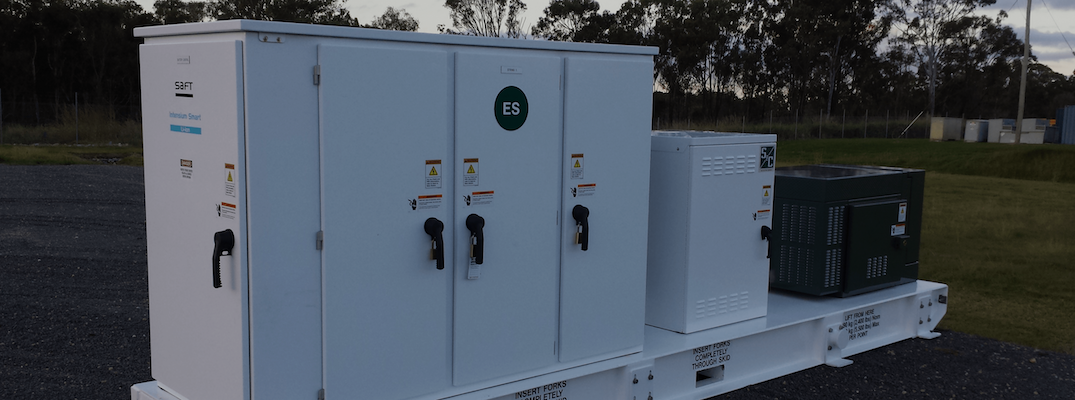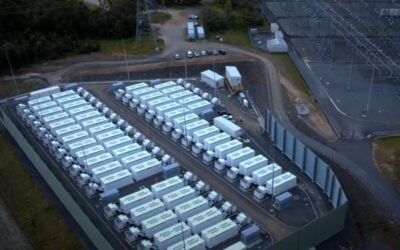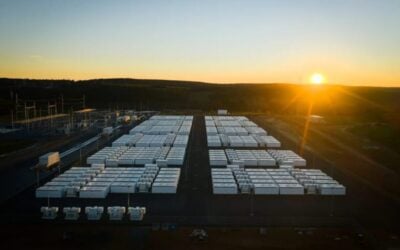
Advanced battery technology company Saft has executed its first projects in Australia, installing around 2MWh of battery energy storage systems (BESS) at 13 sites in Queensland.
Electricity distribution network operator Ergon Energy has decided to adopt Saft’s lithium-ion energy storage systems to meet customer needs at fairly remote locations in Queensland, with the systems to be deployed over four years.
While Saft recently launched a 2.5MWh, much larger containerised ESS product, for the Ergon deal, the European battery company has deployed 20 separate Saft Intensium Mini lithium-ion energy storage systems (ESS), each of 100kWh capacity and 25kVA power “up to 800V in harsh environments,” Saft said.
Ergon currently uses single-wire earth return (SWER) cabling to reach customers a long way from the grid. SWER, which uses a single cable that also acts as the earthing, is in wide use in Australia and New Zealand. In a 2016 interview on Ergon’s corporate blog, company innovation engineer Stephen Richardson said that Ergon manages more than 164,000km of SWER.
Try Premium for just $1
- Full premium access for the first month at only $1
- Converts to an annual rate after 30 days unless cancelled
- Cancel anytime during the trial period
Premium Benefits
- Expert industry analysis and interviews
- Digital access to PV Tech Power journal
- Exclusive event discounts
Or get the full Premium subscription right away
Or continue reading this article for free
In order to support the operation of the grid, including SWER cabling, Ergon is rolling out its own Grid Utility Support System (GUSS), which Richardson described as a “network-side energy storage product,” and said that the first 20 sites being developed with GUSS have been chosen by the distribution company as “the most needy areas for initial deployment”.
Saft’s battery systems have therefore been incorporated into Ergon’s GUSS proposition, with the battery company claiming the Ergon Energy Network ordered the GUSS to be deployed as a “cost-effective alternative to traditional augmentation on SWER networks”.
The batteries charge up during times of low demand and reinject power to the grid when demand peaks. Energy demand spikes in remote Queensland can be related to anything from energy-intensive farming to household peak demand in the evenings, and the SWER networks have been vulnerable to capacity and voltage constraints as a consequence, Saft said.
The battery solution provider said that its lithium-ion batteries can operate at temperatures of between 0 and 45 degrees centigrade (32 to 113 Fahrenheit), which should be an advantage in the Australian Outback’s heat, while the systems can be installed either as individual units of 25kVA or in pairs to make up 50kV.
The deal comes not long after Saft agreed a contract with a telecoms provider in Europe to repower mobile phone masts in Hungary with Saft’s nickel battery-based storage, replacing legacy lead acid battery systems already in place.





